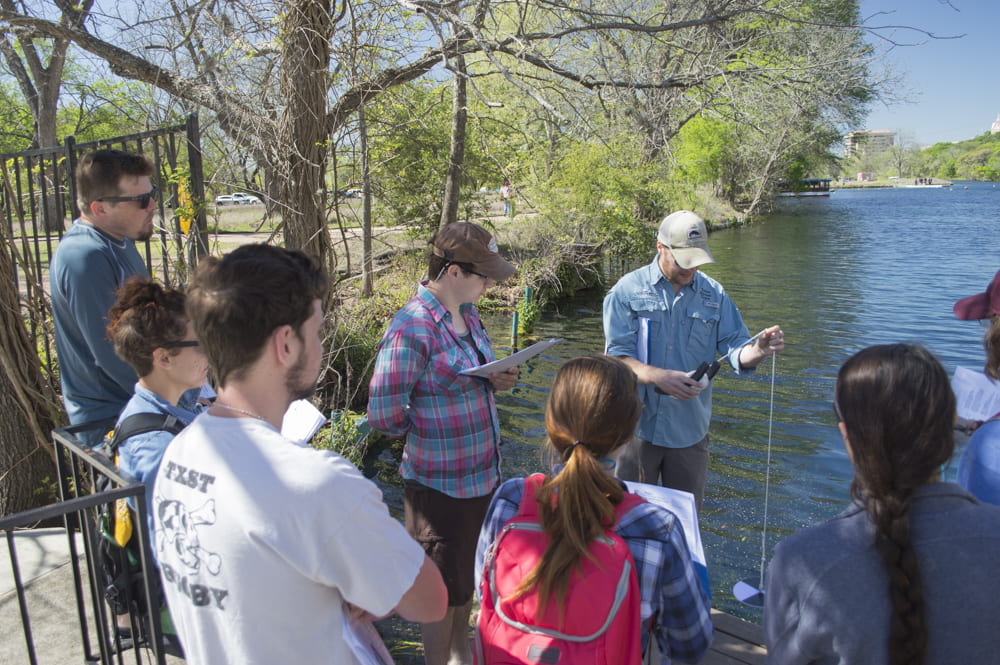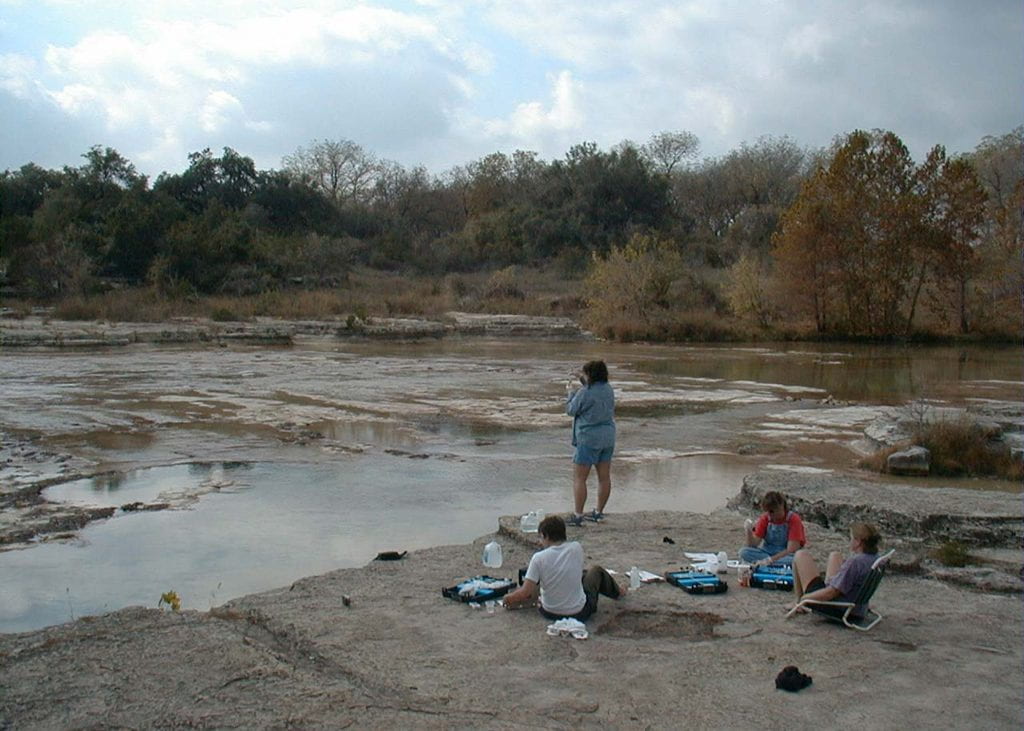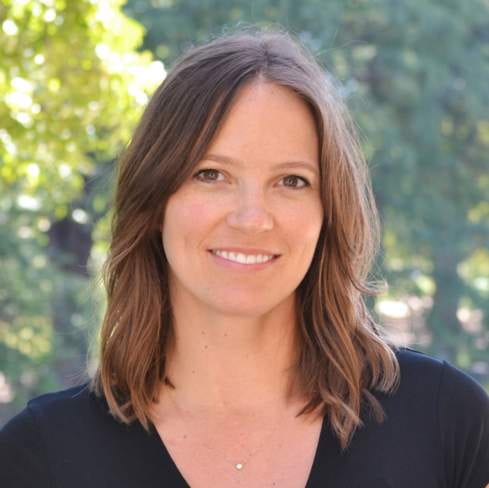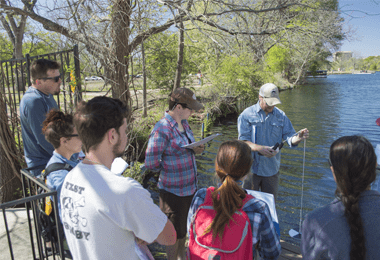Picture yourself heading out to face the day. There may be that one special creek you pass over that prompts you to tap the brakes and turn your head to catch a brief glimpse of it. In turn, you remember to take a deep breath. Is the creek full… dry… raging… steady… healthy… or there at all anymore? You, my friend, are what we like to call a river rubbernecker.
Would you like to get to know that favorite stream better? What is its source? Where does it go? What are its threats? Is it safe to wade or swim? What if you were the first to discover that it was suffering from a major pollution event?
Texas Stream Team at The Meadows Center for Water and the Environment is dedicated to understanding and protecting the 191,000 miles of Texas waterways. We bring together community members, students, educators, academic researchers, environmental professionals, and both public and private sector partners to conduct scientific research, promote environmental stewardship and ensure clean and safe water for current and future generations.

Participating in a Texas Stream Team citizen scientist water quality monitoring training will teach you how to read a river and become a river guardian in as little as a one time, 4-hour training and one hour of monitoring per month thereafter. Through this training, a Texas Stream Team staff member or trained partner will teach you how to measure basic water quality parameters and conduct field observations. Monitoring water quality and making observations about the surrounding environment is a valuable tool to understand the overall health of a watershed.
Depending on where you live, you will then be assigned a monitoring site to test water quality on a monthly basis or can perhaps adopt your favorite water hole or corner of the lake that you’ve grown to know and love. You can also get plugged in with local efforts to protect Texas waterways and educate the public about environmental stewardship.

You may be the next person in our organization to discover an oil sheen or a fish kill or other evidence of a significant pollution event that, otherwise, may have remained undiscovered for weeks, months or years. Texas Stream Team citizen scientists are considered first responders because they are often the eyes and the ears of the river that may only be monitored by professionals on a quarterly or annual basis if we’re lucky.
On May 29, a Texas Stream Team citizen scientist that partners with the City of Grand Prairie to monitor a local park pond was the first to sound the alarms of a large motor oil spill in the area. There are countless other events like this one that fill in the gaps of professional water quality monitoring efforts and allow those of us that know our local creeks and rivers best to play a pivotal role in the protection of them.
Over the past 27 years, more than 10,000 Texans have been trained with Texas Stream Team to collect water quality data that supports academic research, informs policy, and serves as a de facto early warning system for Texas river systems. For the sake of your favorite river, lake, spring, bayou, tank, or creek, I encourage you to join us! Our rivers need you now more than ever.
For more information or to sponsor monitoring efforts in your community, visit JoinStreamTeam.org or email txstreamteam@txstate.edu.
Texas Stream Team is funded in part through a federal Clean Water Act (CAC) 319(h) grant from the U.S. Environmental Protection Agency (EPA) and is administered by the Texas Commission on Environmental Quality (TCEQ).
Author
 Jenna Walker, MAGeo
Jenna Walker, MAGeo
Texas Stream Team Program Manager, The Meadows Center for Water and the Environment
Jenna is a 7th-generation Texan. She earned a Master of Applied Geography in Resource and Environmental Studies from Texas State University. Her past work experience involves watershed protection, legislative aide work and environmental and international education.

